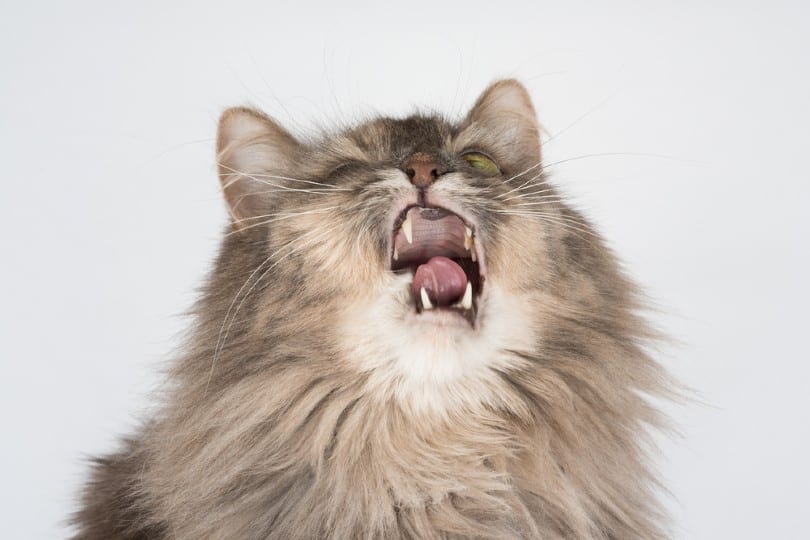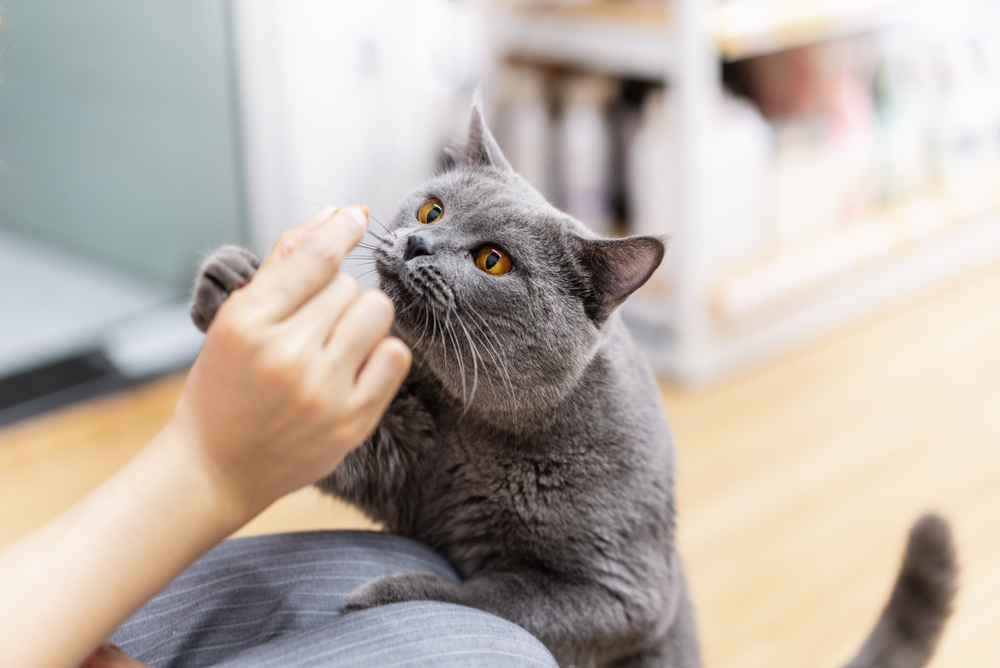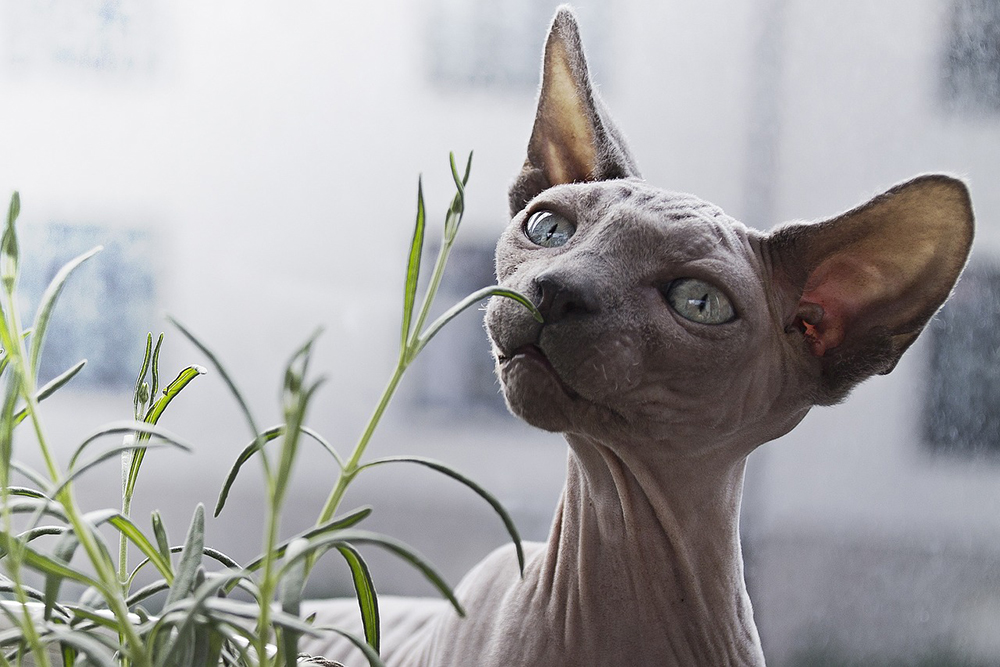Cats is also fastidious, sleek, and affectionate—however in the case of positive smells, they’re the rest however delicate. With a way of odor as much as 14 instances more potent than ours, cats revel in scents in a wholly other manner. What smells delightful, and even impartial, to us can also be overpowering and even repulsive to a pussycat.
Figuring out which smells cats hate isn’t only a a laugh truth for minutiae evening. It allow you to arrange your house extra successfully, steer clear of the usage of frustrating scents round your pets, and even gently discourage cats from coming into positive spaces or inflicting bother in puts just like the lawn, furnishings, or litter-prone zones.
So, which scents are maximum offensive on your pussycat pal? Let’s discover the smells that the majority cats instinctively steer clear of, and the way a few of them could be used on your merit, at all times with protection in thoughts.

From Citrus to Espresso: 14 Scents Your Hepper Secretly Hates
 Symbol Credit score: ZlataMarka, Shutterstock
Symbol Credit score: ZlataMarka, Shutterstock
1. Citrus
Cats have a well known dislike for the rest citrus. Oranges, lemons, limes, and grapefruits are extra than simply ugly to their noses—they’re probably poisonous. Over generations, cats have evolved a herbal aversion to citrus oils and peels, and is the reason why they generally tend to keep away from those scents. Whilst citrus very important oils may appear to be a just right repellent, they’re some distance too concentrated and dangerous to be used round cats. A more secure selection is to boil citrus peels and dilute the aroma with water in a sprig bottle, keeping off any direct touch together with your puppy.
2. Lavender
Lavender is every other smell that cats instinctively steer clear of. Whilst people in finding it calming, it accommodates compounds—like linalool and linalyl acetate—that cats can’t metabolize. Lavender very important oil is particularly potent and poisonous, so it must by no means be used close to pets. Then again, lavender vegetation in pots can be offering a gentle deterrent in explicit spaces, so long as your cat isn’t tempted to chunk at the leaves.
3. Rosemary and Thyme
Herbs like thyme and rosemary additionally have a tendency to be on a cat’s “no-go” checklist. The smell is robust and unfamiliar to their noses, which might give an explanation for the aversion. In contrast to lavender or citrus, those herbs aren’t poisonous, making them a slightly protected choice if you wish to discourage a curious cat from positive spaces. Planting thyme or rosemary, or hanging satchels round your house, can assist stay pussycat explorers at bay.
4. Peppermint and Mint
Scents like peppermint and different varieties of mint—reminiscent of spearmint and pennyroyal—also are disliked by way of cats. Whilst mint is a staple in lots of human families, it’s if truth be told poisonous to tom cats and must be used sparsely. Steer clear of very important oils utterly, however strategically hanging mint vegetation in pots can act as a gentle deterrent for indoor cats.
5. Vinegar
When you’re looking to stay your cat out of a particular house, one thing so simple as white vinegar may do the trick. Its overpowering odor can masks different scents, which is beneficial when looking to save you cats from revisiting puts they’ve up to now marked. A diluted mixture of white vinegar and water in a sprig bottle is efficacious, despite the fact that it must by no means be sprayed immediately on or close to your cat.
6. Eucalyptus
Eucalyptus is also a calming smell for other folks, particularly when used to alleviate respiration signs, but it surely’s some distance too intense for cats. Whilst its robust aroma can paintings as a repellent, eucalyptus—particularly the very important oil—is poisonous to tom cats, so it must be stored out of succeed in.
7. Chili Powder and Spices
Different smells that cats hate come with chili powder, because of the inflammation it might probably motive to their delicate eyes and nostril. Despite the fact that it would appear to be an efficient lawn deterrent, it poses too many dangers, together with pores and skin and mouth inflammation, or even digestive problems if ingested, so we don’t suggest its use as a deterrent.
 Symbol Credit score: Anciens Huang, Shutterstock
Symbol Credit score: Anciens Huang, Shutterstock
8. Mothballs
For equivalent causes, mothballs also are off-limits. Despite the fact that efficient in repelling cats because of their stinky smell, they’re extremely poisonous—and in some spaces, even unlawful to make use of as animal deterrents.
10. Banana Peels
Banana peels, whilst apparently innocuous, unencumber ethene fuel right through the ripening procedure, which cats in finding extremely ugly. Despite the fact that they most probably gained’t devour the peel, the odor on my own is in most cases sufficient to lead them to steer clear of the world. Then again, banana peels shouldn’t be unnoticed for too lengthy, as they decompose briefly and will draw in mildew or pests.
11. Ammonia
Ammonia is every other smell cats despise—most probably as it mimics the odor of urine. Sadly, this makes it a deficient selection for cleansing, as it might probably if truth be told inspire cats to mark the similar spot once more.
12. Espresso Grounds
Espresso grounds are disliked by way of maximum cats because of the robust smell, and because caffeine is poisonous to tom cats, they instinctively steer clear of it. Used grounds can also be positioned in gardens or on counter tops—safely out of succeed in—as a gentle deterrent.
13. Onions and Garlic
Onions, like garlic, also are extremely poisonous to cats and have a tendency to worsen their eyes and noses because of sulfur-containing compounds. Whilst maximum cats keep away from those meals naturally, neither must be used as a repellent because of the chance of ingestion.
13. Positive Family Cleaners
Robust-smelling disinfectants, bleach, and different chemical cleaners crush cats. Their noses are so delicate that even small strains can really feel insufferable.
14. Robust Perfumes & Deodorizers
What’s a nice floral spritz to us is overpowering to cats. Heavy fragrances present in air fresheners, perfumes, and candles are commonplace family irritants. Very important oil diffusers also are a no-go with cats.

Protecting Your House Protected for Your Hepper
 Symbol Credit score: Pexels, Pixabay
Symbol Credit score: Pexels, Pixabay
Whilst many of those smells are herbal cat repellents, now not all are protected to be used round your pets. Very important oils, concentrated plant compounds, and elements like ammonia or mothballs pose actual dangers. All the time prioritize your cat’s protection when making an attempt to make use of scents to control habits or mark limitations in your house or lawn.
For the ones looking to prevent cats from peeing in positive spaces, understand that smell deterrents on my own would possibly not resolve the problem. An intensive cleansing is very important to do away with all strains of urine—particularly the ones your cat can odor, even supposing you’ll be able to’t. As soon as the world is really blank, you’ll be able to use milder smell deterrents like herbs or vinegar spray to deter long run injuries.

Ultimate Ideas
A cat’s sensitivity to sniff is considered one of its maximum defining characteristics, and one who can be utilized thoughtfully when managing habits or growing limitations at house. Whether or not it’s the overpowering smell of citrus or the pungency of vinegar, working out what your cat dislikes allow you to create a extra harmonious shared area. Simply make sure to steer clear of poisonous elements and at all times practice your cat’s reactions sparsely. A fresh-smelling house is excellent—however a protected one is even higher.
Characteristic Symbol Credit score: Andrei-Metelev, Shutterstock






